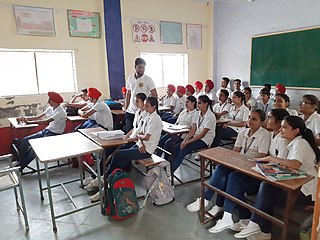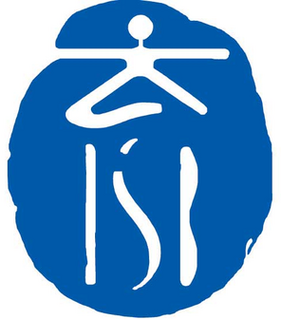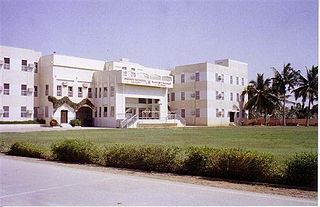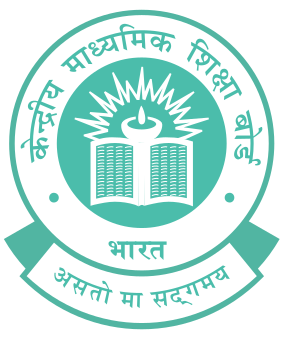
Education in India is primarily managed by state-run public education system, which fall under the command of the government at three levels: Central, state and local. Under various articles of the Indian Constitution and the Right of Children to Free and Compulsory Education Act, 2009, free and compulsory education is provided as a fundamental right to children aged 6 to 14. The approximate ratio of public schools to private schools in India is 7:5. Major policy initiatives in Indian education are numerous. Up until 1976, education policies and implementation were determined legally by each of India’s constitutional states. The 42nd amendment to the constitution in 1976 made education a ‘concurrent subject’. From this point on the central and state governments shared formal responsibility for funding and administration of education. In a country as large as India, now with 28 states and eight union territories, this means that the potential for variations between states in the policies, plans, programs and initiatives for elementary education is vast. Periodically, national policy frameworks are created to guide states in their creation of state-level programs and policies. State governments and local government bodies manage the majority of primary and upper primary schools and the number of government-managed elementary schools is growing. Simultaneously the number and proportion managed by private bodies is growing. In 2005-6 83.13% of schools offering elementary education were managed by government and 16.86% of schools were under private management. Of those schools managed privately, one third are ‘aided’ and two thirds are ‘unaided’. Enrolment in Grades 1-8 is shared between government and privately managed schools in the ratio 73:27. However in rural areas this ratio is higher (80:20) and in urban areas much lower (36:66).

The Kendriya Vidyalaya Sangathan is a system of central government schools in India that are instituted under the aegis of the Ministry of Education, Government of India. As of August 2021, it has a total of 1,248 schools in India, and three abroad in Moscow, Tehran and Kathmandu. It is one of the world's largest chains of schools and also the largest chain of school in India being controlled by 25 Regional Offices and 05 ZIETs under KVS (HQ).

The International School of Beijing is a private international coeducational day school in Beijing, China. The school was founded in 1980 and offers a dual English and Chinese language program for students from PreK3 to Grade 12. ISB is recognised by the Beijing Education Commission (BEC) as an independent school for expatriate children.

Modern School is a co-educational, private school in New Delhi, India. It was founded in 1920 by Lala Raghubir Singh, a prominent Delhi-based businessman and philanthropist, who desired an institution that combined the "best of ancient Indian tradition with the needs of the times." It was the first private and coeducational school established in Delhi after the capital of the British Raj shifted to the city.

Mallya Aditi International School is a private school located in New Town Yelahanka, Bangalore, India.. Aditi has consistently been ranked among India's top 5 private day schools.

The Bannari Amman Institute of Technology (Autonomous) is an engineering college located in Sathyamangalam, Erode, Tamil Nadu, India. It was founded by the Bannari Amman Group in 1996 and is affiliated to Anna University. The institute offers 21 undergraduate, 10 postgraduate programmes in Engineering, Technology and Management studies. All the departments of Engineering and Technology are recognized by Anna University, Chennai to offer Ph.D. programmes. The institution is ISO 9001:2000 certified for its quality education, and most of the eligible courses are accredited by National Board of Accreditation (NBA), New Delhi and National Assessment and Accreditation Council (NAAC) with "A+" Grade. The institute received the best Engineering College Award from Indian Society for Technical Education in the year 2009. The institute was also awarded the silver medal for Best Overall Industry-Linked Engineering College from AICTE-CII National Survey on Industry-Linked Engineering Institutes in 2012.
The British School New Delhi is an independent, multicultural, English Medium, co-educational international school. This not-for-profit school offers the National Curriculum of England adapted to an international context, the EYFS programme, the IGCSE and the IB Diploma Programme. With over 1,200 students from 66 nationalities, the school provides student-centred education in a safe, stimulating and multicultural environment.
Saint Peter's is a school located in Kadayiruppu, Kolenchery in Kerala State, South India. It caters a co-educational programme from Junior Kindergarten to Grade 12. The school is owned and managed by the Saint Peter's Education Trust, Kadayiruppu, a society within the meaning of the Travancore–Cochin Literary Scientific and Charitable Societies Registration Act 1952.
International Indian School Riyadh (IISR), formerly the Embassy of India School, Riyadh is a community-based English-medium school in Riyadh, Saudi Arabia, primarily serving the Indian diaspora. It is one of the largest Indian schools with close to 9500 students. The students are locally known as IISRIANs'. The School is part of global International Indian Schools including International Indian School, Dammam, International Indian School Jeddah, International Indian School, Al-Jubail and is affiliated to the Central Board of Secondary Education (C.B.S.E), New Delhi, India and is licensed under the Ministry of Education, Kingdom of Saudi Arabia. The School endeavors to move towards fulfillment of above goals under the patronage and guidance of Ahmed Javed, Ambassador of India to the Kingdom, and the Patron of the school.
There is a small Korean community in India, consisting largely of South Korean expatriate professionals and their families, as well as some missionaries and international students at Indian universities.

The Indian School Salalah is an Indian-run, self-financing, co-educational institution, primarily established to meet the academic needs of children of Indian expatriates working in the Sultanate of Oman in the Persian Gulf. The school also admits children of other nationalities. The school is located in the Dahariz area, of Salalah town, in the southern governorate of Dhofar.

The Central Board of Secondary Education (CBSE) is a national level board of education in India for public and private schools, controlled and managed by the Government of India. Established in 1929 by a resolution of the government, the Board was indeed a bold experiment towards inter-state integration and cooperation in the sphere of secondary education. There are approximately 26,054 schools in India and 240 schools in 28 foreign countries affiliated to the CBSE. All schools affiliated to CBSE follow the NCERT curriculum. The current Chairperson of CBSE is Manoj Ahuja IAS.
Air Force Bal Bharati School (AFBBS) established 1955, is a senior secondary school situated on Lodi Road, New Delhi, India, and run by the Indian Air Force Educational and Cultural Society. It is affiliated to the Central Board of Secondary Education.
Education is based on three-tier model which includes primary schools, followed by secondary schools and tertiary education at universities or other institutes of same level. Education Department of the Government of Delhi is a premier body which looks into the educational affairs.the RTE right to education also describes children from the age of 6 to 14 have to cumpulsolarily need to be educated. 25% of the seats in all private schools are also reserved for the under-privileged children. Tertiary education is administrated by the Directorate of Higher Education.

FORE School of Management is a privately-held business school, located in New Delhi, India.

Visitors to India must obtain a visa unless they come from one of the visa-exempt countries. Nationals of certain countries may obtain a visa on arrival or an e-Visa online, while others must obtain a visa from an Indian diplomatic mission.
DPS Academy is a private Indian school in Dubai International Academic City, in Dubai, United Arab Emirates which is affiliated to ICSE curriculum, Delhi. It is the third school to run under the aegis of Delhi Public School Society in the United Arab Emirates which also operates Delhi Private School which is affiliated to CBSE curriculum in Dubai and in Sharjah.
The French International School of Mumbai commonly referred to as LFIM, is a private French international school in Lower Parel, Mumbai, India. Established in 1983, its levels range from kindergarten all the way to senior high school. The school is the only bilingual school in Mumbai. It was formerly known as Ecole Française Internationale de Mumbai.
Indus Trust is a non profit educational trust that focuses on training research and allied activities for underprivileged communities in India.










